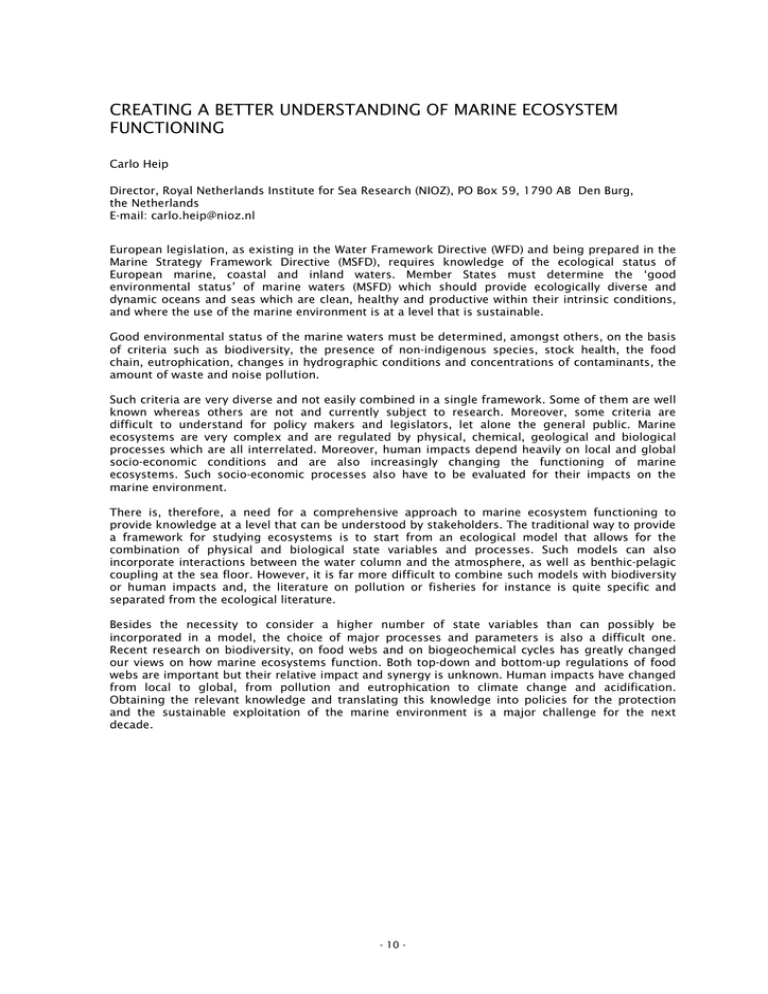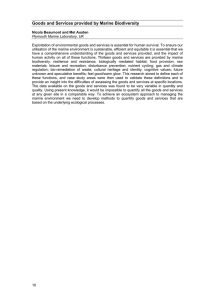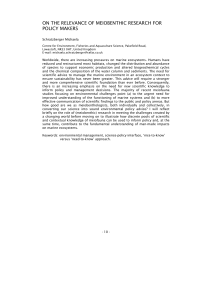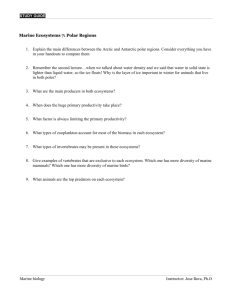CREATING A BETTER UNDERSTANDING OF MARINE ECOSYSTEM FUNCTIONING
advertisement

CREATING A BETTER UNDERSTANDING OF MARINE ECOSYSTEM FUNCTIONING Carlo Heip Director, Royal Netherlands Institute for Sea Research (NIOZ), PO Box 59, 1790 AB Den Burg, the Netherlands E-mail: carlo.heip@nioz.nl European legislation, as existing in the Water Framework Directive (WFD) and being prepared in the Marine Strategy Framework Directive (MSFD), requires knowledge of the ecological status of European marine, coastal and inland waters. Member States must determine the ‘good environmental status’ of marine waters (MSFD) which should provide ecologically diverse and dynamic oceans and seas which are clean, healthy and productive within their intrinsic conditions, and where the use of the marine environment is at a level that is sustainable. Good environmental status of the marine waters must be determined, amongst others, on the basis of criteria such as biodiversity, the presence of non-indigenous species, stock health, the food chain, eutrophication, changes in hydrographic conditions and concentrations of contaminants, the amount of waste and noise pollution. Such criteria are very diverse and not easily combined in a single framework. Some of them are well known whereas others are not and currently subject to research. Moreover, some criteria are difficult to understand for policy makers and legislators, let alone the general public. Marine ecosystems are very complex and are regulated by physical, chemical, geological and biological processes which are all interrelated. Moreover, human impacts depend heavily on local and global socio-economic conditions and are also increasingly changing the functioning of marine ecosystems. Such socio-economic processes also have to be evaluated for their impacts on the marine environment. There is, therefore, a need for a comprehensive approach to marine ecosystem functioning to provide knowledge at a level that can be understood by stakeholders. The traditional way to provide a framework for studying ecosystems is to start from an ecological model that allows for the combination of physical and biological state variables and processes. Such models can also incorporate interactions between the water column and the atmosphere, as well as benthic-pelagic coupling at the sea floor. However, it is far more difficult to combine such models with biodiversity or human impacts and, the literature on pollution or fisheries for instance is quite specific and separated from the ecological literature. Besides the necessity to consider a higher number of state variables than can possibly be incorporated in a model, the choice of major processes and parameters is also a difficult one. Recent research on biodiversity, on food webs and on biogeochemical cycles has greatly changed our views on how marine ecosystems function. Both top-down and bottom-up regulations of food webs are important but their relative impact and synergy is unknown. Human impacts have changed from local to global, from pollution and eutrophication to climate change and acidification. Obtaining the relevant knowledge and translating this knowledge into policies for the protection and the sustainable exploitation of the marine environment is a major challenge for the next decade. - 10 -






